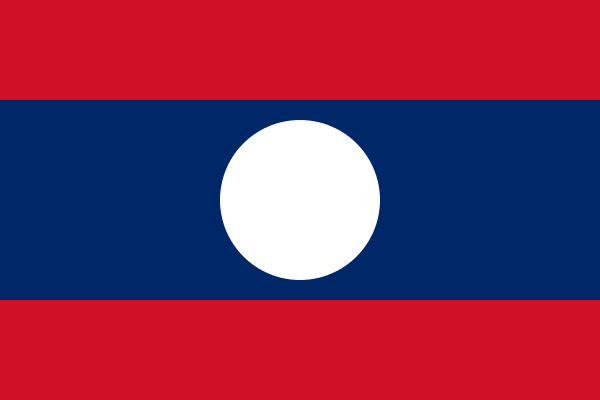 Thanks to the easing of restrictions on private enterprise in favor of a more open economy and its role as an important hydroelectric power supplier to neighboring countries (like China, Vietnam and Thailand), Laos’ economy is growing but there remains a shortage of skilled and experienced managers and professionals alike while some 85% of the population is still dependent to some degree on subsistence agriculture for their livelihoods.
Thanks to the easing of restrictions on private enterprise in favor of a more open economy and its role as an important hydroelectric power supplier to neighboring countries (like China, Vietnam and Thailand), Laos’ economy is growing but there remains a shortage of skilled and experienced managers and professionals alike while some 85% of the population is still dependent to some degree on subsistence agriculture for their livelihoods.
The Laotian Diaspora and Returnees
The Laotian diaspora consists of over half a million Lao people with the overwhelming majority of overseas Laotians living in Thailand (in part due to the Siamese annexation of the Isan region while more recent arrivals have been refugees), the United States and France while smaller Lao populations can also be found in Vietnam, Cambodia, Germany, Argentina, Australia and New Zealand.
In North America, there are an estimated 200,000 Americans of Laotian descent concentrated in metropolitan areas on the West Coast (the San Francisco Bay Area and Greater Sacramento region) and the Upper Midwest (Minneapolis–Saint Paul) along with smaller communities in the Dallas–Fort Worth metroplex and the Seattle metropolitan areas plus there are 22,000 Canadians of Laotian concentrated in Ontario and Quebec.
In Europe, there are an estimated 140,000 ethnic Laotians living in France with immigration there beginning with a small number of students and workers from the Laotian elite during colonial times who were then followed by refugees fleeing the Indochina and Vietnam Wars. Today and somewhat in contrast to the Laotian American community, the French Laotian community (on average) has a high level of education, is economically successful and is well integrated into French society.
The Laos Recruitment Market
Given Laos’ small economy and status as a frontier market, job opportunities for expatriates would still be limited. Nevertheless and given the fact that experienced local managers, technicians and professionals are in very short supply, there would be opportunities for foreign expatriates and Laotian returnees alike to step in and fill the void in most sectors of the local economy.
Working in Laos
Laos work visas (otherwise known as Labour visas) are issued to the expatriates who get a work permit from the Ministry of Information, Culture and Tourism and welfare/identities cards from the Immigration Department. Note that only large businesses can really hire expatriates as there is a law which states that the ratio of Lao to foreign expatriates must be 10:1. In other words, for every 10 Lao employees, a business can only hire one foreign expatriate.
On the tax front, the top income tax rate in Laos is 24%, but employees whose employer has a contract signed with the Government of Laos (e.g. investors with concession agreements) before the Presidential Decree No. 001/PS of March 1, 2011, will be subject to a personal income tax at a flat rate of 10% until the contract expires or is renewed / extended. For further information about Laos tax rates or Laotian taxes in general, download KPMG’s Laos Tax Profile or visit the website of the Laos Tax Department.
Laos Recruitment and Jobs Resources
For additional Laos recruitment resources, check out the Laos tagged posts from our Brain Drain to Brain Gain blog as well as our Laos jobs page.
